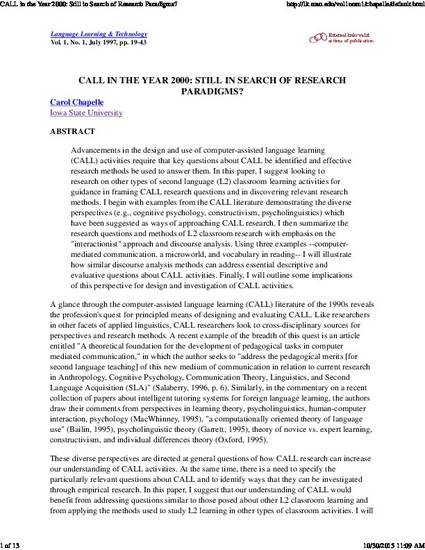
Advancements in the design and use of computer-assisted language learning (CALL) activities require that key questions about CALL be identified and effective research methods be used to answer them. In this paper, I suggest looking to research on other types of second language (L2) classroom learning activities for guidance in framing CALL research questions and in discovering relevant research methods. I begin with examples from the CALL literature demonstrating the diverse perspectives (e.g., cognitive psychology, constructivism, psycholinguistics) which have been suggested as ways of approaching CALL research. I then summarize the research questions and methods of L2 classroom research with emphasis on the "interactionist" approach and discourse analysis. Using three examples --computer-mediated communication, a microworld, and vocabulary in reading-- I will illustrate how similar discourse analysis methods can address essential descriptive and evaluative questions about CALL activities. Finally, I will outline some implications of this perspective for design and investigation of CALL activities.
Available at: http://works.bepress.com/carol_chapelle/14/

This article is from Language Learning & Technology 1 (1997): 19. Posted with permission.